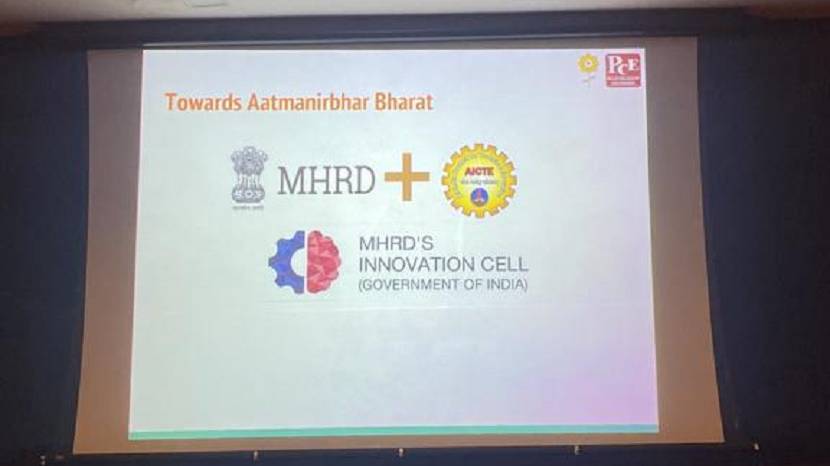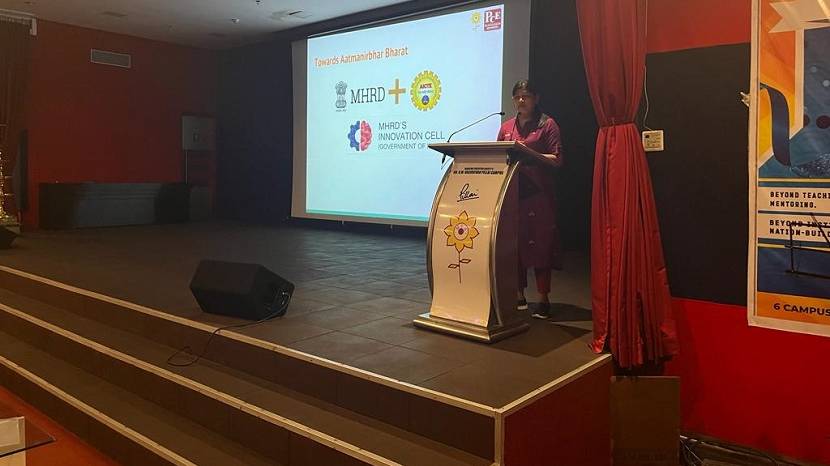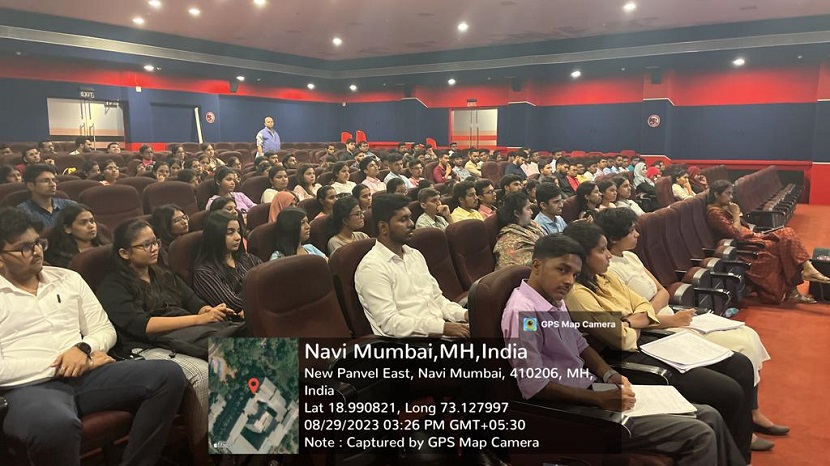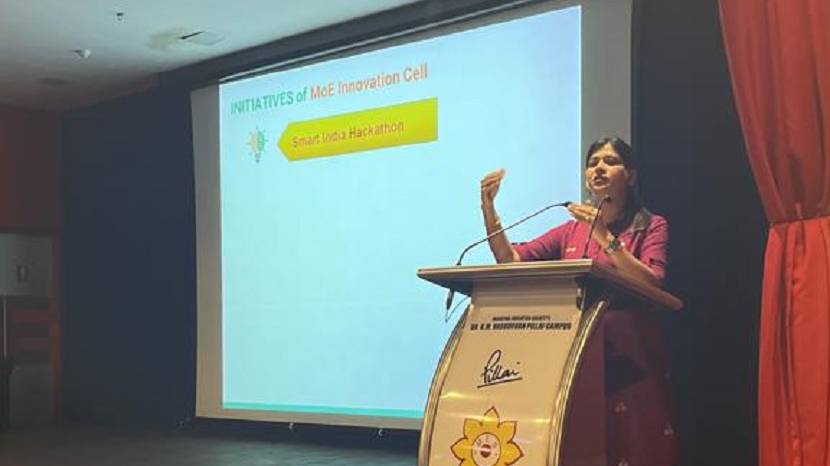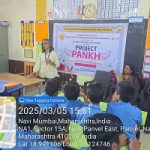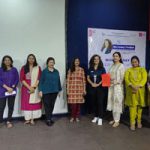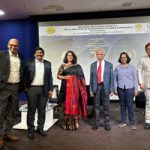The IIC of PiMSR organised a session on the topic Exploring Opportunities and Challenges for Early Stage Entrepreneurs on 29th August, 2023 for the management students. 171 students and 5 faculty members attended the same. The resource person was Dr. Richa S. Agrawal – Associate Professor, IIC President and Innovation Ambassador at Pillai College of Engineering. The objective of the session was to help the students understand the various opportunities and challenges of entrepreneurship.
Dr. Richa S Agarwal spoke on the subject of early stage entrepreneurship, focusing on the opportunities and challenges that come with it. She engaged the audience with questions about their understanding of entrepreneurship and aspirations to become entrepreneurs. The discussion revolved around the initiatives of the Ministry of Education (MoE) Innovation Cell and the shift in mindset from traditional job-seeking to entrepreneurship.
Understanding Entrepreneurship:
Dr. Agarwal began by eliciting responses from the audience to gauge their familiarity with the concept of entrepreneurship. She then inquired about their aspirations to become entrepreneurs, emphasizing the significance of innovation and self-reliance in today’s world.
Initiatives of MoE Innovation Cell:
The speaker highlighted the collaborative efforts of the Ministry of Education (MoE) and the All India Council for Technical Education (AICTE) through the MoE Innovation Cell. The cell’s initiatives aimed to nurture innovation and entrepreneurship among students and institutions. These initiatives include:
- Smart India Hackathon: A platform for addressing real-world challenges through innovative solutions.
- Institution Innovation Council: Fosters a culture of innovation within educational institutions.
- Atal Ranking of Institutions on Innovation Achievements (ARIIA): Ranks institutions based on their innovation endeavors.
- National Innovation and Startup Policy (NISP): Facilitates the growth of startups and innovation ecosystems.
- KAPILA – Kapam Program for IP Literacy and Awareness: Raises awareness about intellectual property rights.
- YUKTI 2.0: Empowers young innovators to contribute to societal development.
- Unnat Bharat Abhiyan: Engages institutions in rural development initiatives.
- Innovation Ambassador: Empowers individuals to advocate for innovation.
- School Innovation Council: Encourages innovation among school students.
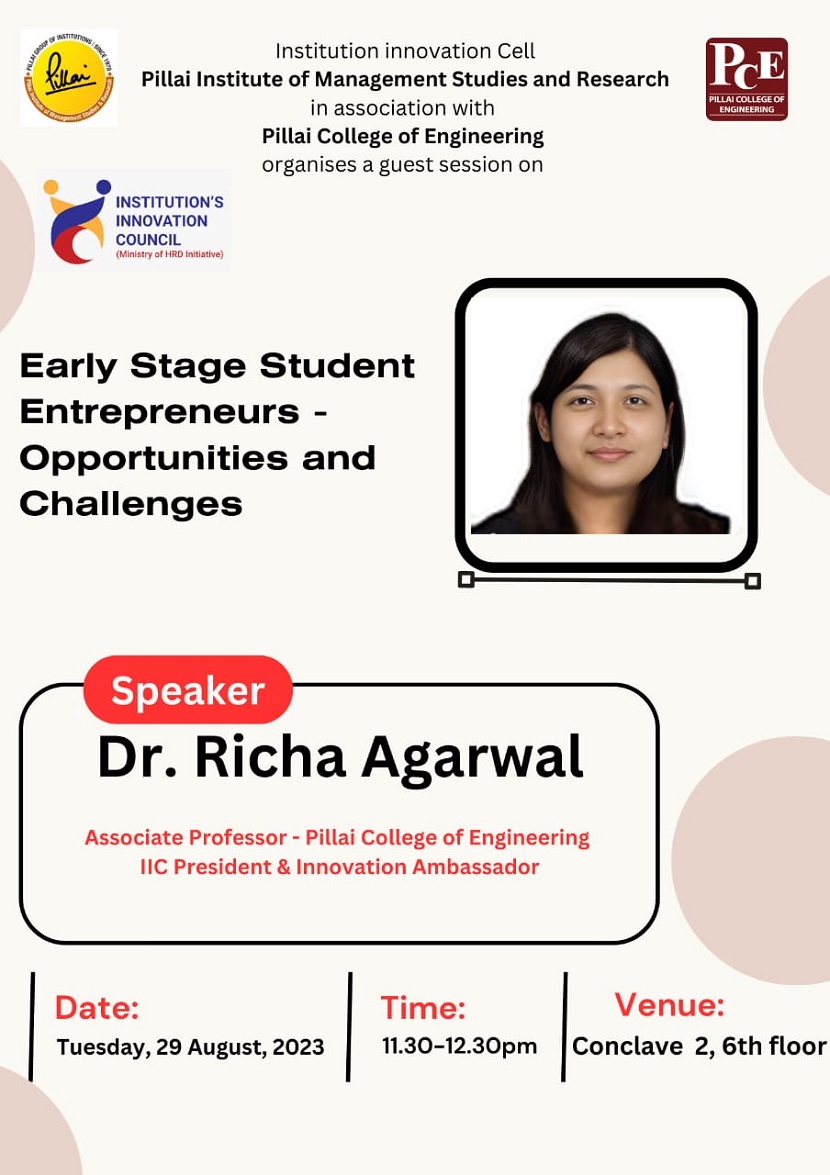
Promoting Innovation:
Dr. Agarwal discussed several hackathons and challenges, such as ASEAN-India Hackathon, Drug Hackathon, Toyathon, and KAVACH 2023 (Cyber Security), which foster innovation and problem-solving skills among participants.
Distinguishing Research from Innovation:
The speaker clarified the distinction between research and innovation, highlighting that research involves investing money to acquire knowledge, whereas innovation employs knowledge to generate revenue.
Exemplary Innovators:
Dr. Agarwal cited prominent innovators like Thomas Edison, Steve Jobs, Homi Jehangir Bhabha, and APJ Abdul Kalam, showcasing their contributions to various fields.
Indian Innovations:
The presentation showcased India’s contributions to innovation, including the concept of zero, Ayurveda, USB technology, traditional board games, shampoo, and yoga.
Entrepreneurial Icons:
The audience was introduced to entrepreneurial icons such as Bill Gates, Mark Zuckerberg, Narayan Murthy, and Dhirubhai Ambani, who have left significant impacts on their respective industries.
Young Indian Innovators:
The speaker highlighted the achievements of young Indian innovators like Armaan Gupta, who designed a remote-controlled mopping machine.
Problem-Solution Approach and Design Thinking:
Dr. Agarwal emphasized the importance of identifying problems and crafting solutions, citing examples like the push-pull concept. She also introduced the concept of design thinking through the example of Uber’s innovative approach.
Phases of Design Thinking:
The audience was led through the five phases of design thinking: Empathize, Define, Ideate, Prototype, and Test.
Technology Readiness Level (TRL):
The speaker explained the concept of Technology Readiness Level, emphasizing the level of maturity and reliability of a technology.
Essential Elements of Startups:
Dr. Agarwal enumerated the key elements of startups: Ideas, Team, Business Model, Funding, and Timing, underscoring their collective significance in a startup’s success.
Case Study – Volvo Automobile Company:
The talk concluded by presenting a case study of Volvo, highlighting how the company creatively used social media, particularly Twitter, to gain attention and enhance sales. Volvo’s innovative marketing approach, which included “Be bold, be different,” led to increased brand recognition and success.
Conclusion:
Dr. Richa S Agarwal’s enlightening talk provided valuable insights into the world of early stage entrepreneurship, emphasizing the importance of innovation, problem-solving, and self-reliance. The initiatives of the MoE Innovation Cell and the stories of renowned innovators inspired the audience to explore their entrepreneurial potential and contribute to India’s growth journey.

